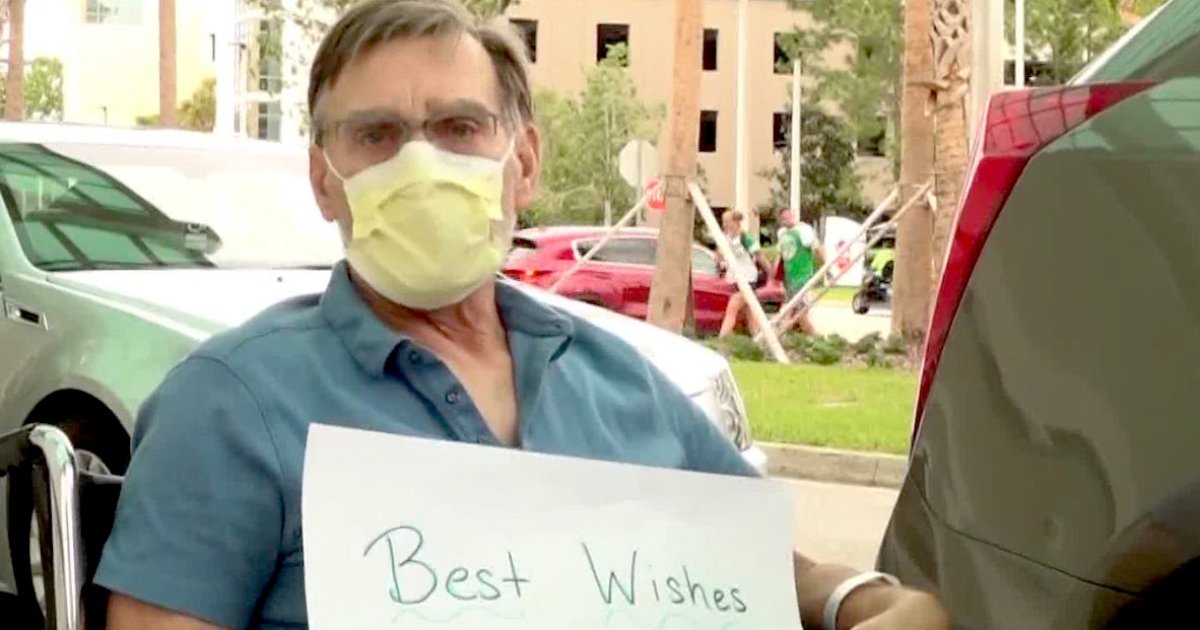For Lung Cancer Patients Who Suspect They May Have COVID-19:
- Contact oncologist before going to the hospital. They can advocate for you with the emergency medical team.
- Know that targeted therapy and immunotherapy may not compromise the immune system in the same way that chemotherapy does.
- Oncologists have shifted to telemedicine and are adapting treatment plans to reduce infection-risk in lung cancer patients.
View this post on InstagramRead More “Everything was against me, with my age, health status, I pulled a miracle, truly," he said. Schuck was treated with hydroxychloroquinine, zinc, and zithromycin to fight the infection. As he left the hospital, Schuck said, “they [doctors and nurses] had a whole line of staff that were cheering. Having lung cancer doesn't necessarily mean that you are more susceptible to the coronavirus (COVID-19), Dr. Karen Reckamp, director of the Division of Medical Oncology at Cedars-Sinai, tells SurvivorNet.“It's just such an overwhelmingly warm engulfing feeling,” Schuck said, adding, “This hospital is amazing. They moved mountains to get me what I needed. God bless you all.”
RELATED: #CoupleGoals Practical Guidance For Relationship Problems During Coronavirus
The couple will continue to practice social distancing at home, as experts have not yet determined whether coronavirus immunity is conferred on COVID-19 survivors.
Lung Cancer and COVID-19
In the epicenter of the coronavirus (COVID-19) pandemic in the U.S. New York City Dr. Brendon Stiles, a thoracic surgeon at Weill-Cornell Medical Center tells SurvivorNet, says his patients are doing fairly well. "It's a really tough time at the hospital as you can imagine," says Dr. Stiles told SurvivorNet in an interview.
“A lot of our resources are being diverted towards those[COVID-19] patients. We're doing everything we can to make sure that our cancer patients get cared for in appropriate fashion during this time as well."
RELATED: The Changing Guidelines For Cancer Treatment During Coronavirus
Dr. Stiles says it’s been an adjustment to combine social distancing with patient care: "That's been the toughest part for me: not being able to put my hands on somebody's shoulder, to pat them on the back, to listen to their lungs," he says. "I do think that that's a big part of medicine that human touch. I think that's why our patients feel scared right now. They're seeing their doctors on a computer screen. They're getting a constant cycle of news, but they're missing the human touch."
Metastatic Patient Concerns
Lung cancer patients, in particular, have watched with concern as hospitals confronting ventilator shortages make difficult decisions about who receives care. “Are they going to deny me a ventilator because I, technically, have a terminal cancer?" says Jill Feldman, a mother of four who has been living with an incurable form of lung cancer for 6 years.
RELATED: What Do People With Lung Cancer Need to Know About COVID-19?
A passionate advocate for patients, Feldman has watched as states scramble to define who gets care and who doesn't during the COVID-19 crisis. "I am living with cancer not dying of it," says Feldman, 50. "I've fought hard to do that. My cancer may be chronic but, I'm 50 and healthy, my lung function is great.”
Still, says Feldman, “If someone saw on paper 'metastatic lung cancer, Stage 4A,' my life would not be considered long enough to save. This is wartime triage, And, I get it, we're not going to pass the triage test. But I'm not dying right now I'm raising my kids."
Advances in Late-Stage Treatment
"Immunotherapy has been a game-changer for lung cancer,” Dr. Stiles says. “And now its use is being expanded to people with earlier stages of the disease. "It's amazing to me now that you can have stage four lung cancer and actually not even need chemotherapy," he notes."
Immunotherapy harnesses the power of a person's own immune system to recognize and kill cancer cells. Says Dr. Stiles: "What people are most excited about is, over the long-term, people are at least raising the question: Can we see cures with immunotherapy and lung cancer?"
Learn more about SurvivorNet's rigorous medical review process.

